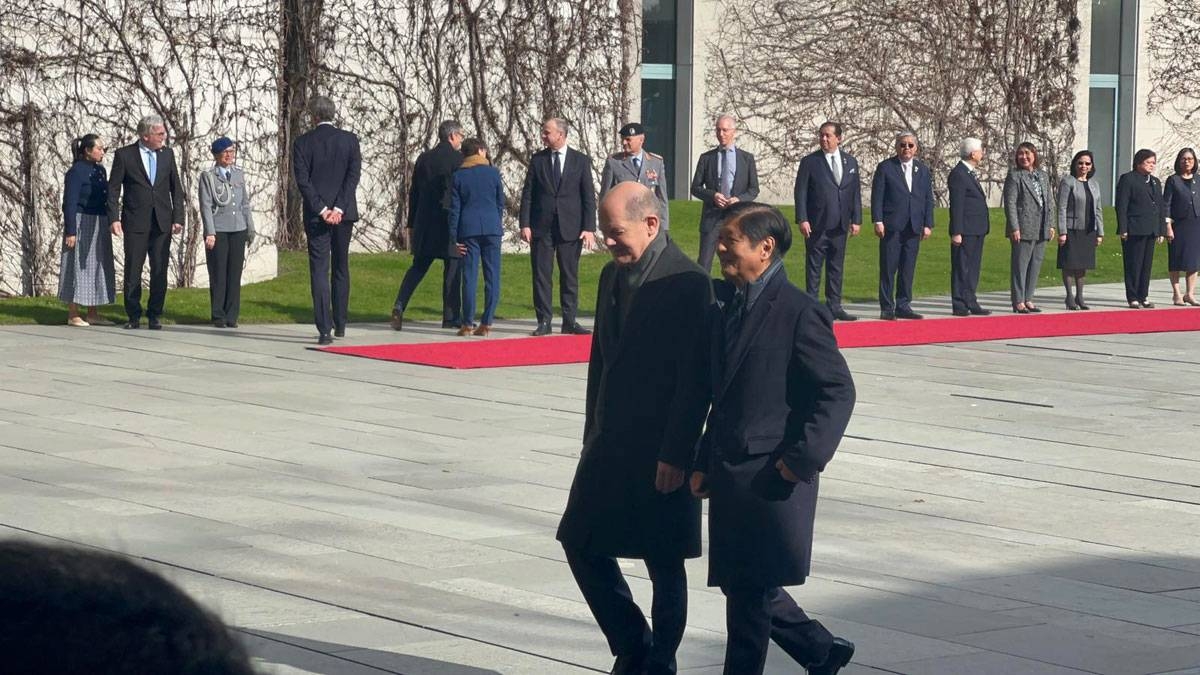Exploring Bilateral Relations: President Marcos Jr. Meets German Chancellor Olaf Scholz
President Ferdinand Marcos Jr. of the Philippines recently embarked on a significant diplomatic visit to Germany, where he met with German Chancellor Olaf Scholz. The purpose of this meeting was to further explore and strengthen the bilateral relations between the two countries. This visit holds great importance for both nations, as it signifies a commitment to enhancing cooperation and collaboration in various areas of mutual interest.
Upon his arrival at The Chancellery in Berlin, President Marcos was warmly received and accorded honors. This gesture reflects the respect and significance attached to this diplomatic visit. Accompanying the President were Speaker Martin Romualdez, Foreign Affairs Secretary Enrique Manalo, Trade Secretary Alfredo Pascual, Presidential Communications Secretary Cheloy Garafil, Philippine Ambassador to Berlin Susan Natividad, and Foreign Affairs Assistant Secretary for European Affairs Maria Elena Algrabre. This delegation showcases the collective effort of the Philippine government in fostering strong ties with Germany.
During his visit, President Marcos witnessed the signing of government-to-government agreements that will undoubtedly contribute to the growth and development of both nations. One of these agreements is a joint declaration of intent on strengthening maritime cooperation. This collaboration holds immense potential for the Philippines and Germany, as it opens avenues for sharing expertise, knowledge, and resources in the maritime sector. Additionally, a cooperation program between the Technical Educational and Skills Development Authority (Tesda) and the Federal Institute for Vocational Education and Training was also established. This program aims to promote skills development and vocational education, which are crucial for economic progress and human capital development.
In addition to the official engagements, President Marcos and Chancellor Scholz had the opportunity for a tete-a-tete and working lunch. These informal discussions provide a platform for open dialogue and exchange of ideas, fostering a deeper understanding between the leaders of both nations. Following these discussions, a joint press conference was held, allowing the leaders to address the media and communicate the outcomes of their deliberations. Such transparency and communication play a vital role in building trust and ensuring that the public is well-informed about the progress made during these diplomatic engagements.
Furthermore, President Marcos’s visit also included engagements with the business community. He graced several business meetings and attended the German-Philippine Business Forum. These interactions aim to promote trade and investment opportunities between the two countries. Strengthening economic ties is crucial for fostering sustainable growth and creating mutually beneficial partnerships.
The visit to Germany also provided an opportunity for President Marcos to connect with the Filipino community residing in Berlin. Meeting with the Filipino diaspora is an essential aspect of any diplomatic visit, as it allows leaders to engage with their citizens abroad, understand their concerns, and provide support when needed. This meeting serves as a reminder to the Filipino community that their government is dedicated to their well-being and is actively working towards their interests.
In conclusion, President Ferdinand Marcos Jr.’s visit to Germany and his meeting with Chancellor Olaf Scholz mark a significant milestone in the bilateral relations between the Philippines and Germany. This visit has allowed both nations to explore areas of cooperation, sign important agreements, and engage in meaningful discussions. By fostering stronger ties, the Philippines and Germany can unlock immense potential for economic growth, cultural exchange, and mutual understanding. Such diplomatic engagements serve as a testament to the commitment of both nations in building a prosperous future together.
Source: The Manila Times








